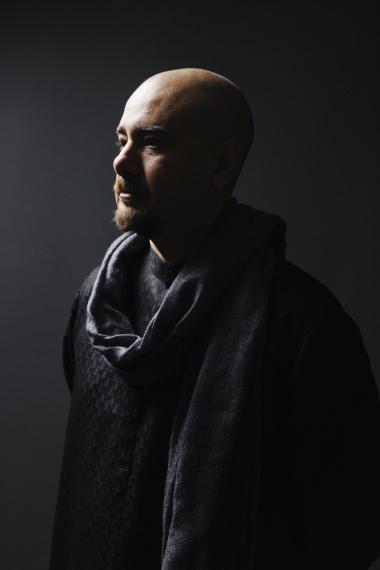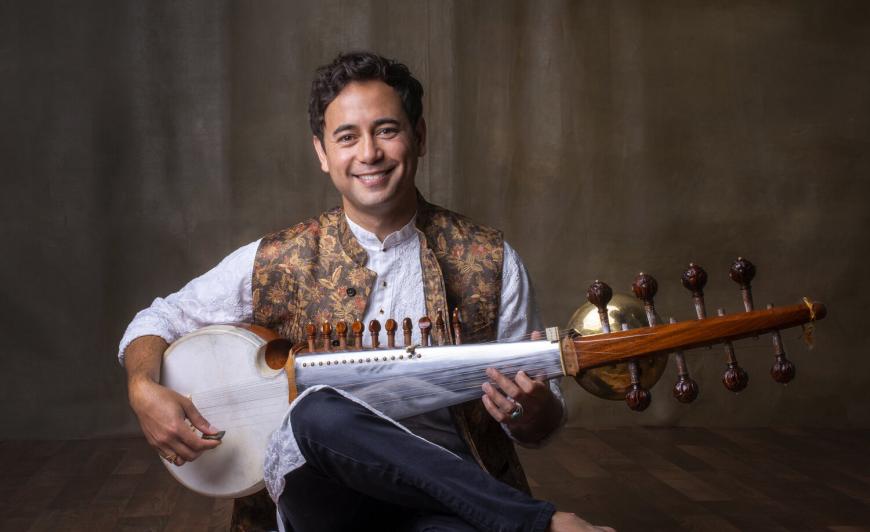
Founded in 1990 and produced by the San Francisco Early Music Society, the biannual Berkeley Festival and Exhibition (BFX) is now in its 18th iteration. The eight-day festival — running through June 16, with 19 mainstage concerts that are pay-what-you-can, as well as special events, a three-day exhibition, community workshops, and dozens of presentations on the Fringe — takes place at various Berkeley venues and has become one of the world’s largest and most important early-music conclaves.
On June 13, BFX will for the first time feature a concert by the brothers Alam and Manik Khan, sarod players and sons of Ali Akbar Khan, the late great sarod master of Hindustani (North Indian) classical music. And while the connections between Hindustani and Baroque music may seem quite disparate, Alam said his father grew up listening to Western classical music on the radio in India.

“Some of these great composers — Bach, Beethoven — made [their] way into my father’s playing, particularly the usage of arpeggios, which weren’t used in Indian classical music. But he used those in some of the ragas [melodic frameworks for improvisation and composition].
“He would play something like ‘Greensleeves,’” added Alam, who was the personal assistant to his father in his final years and assisted him at the Ali Akbar College of Music (AACM) in San Rafael, as well as accompanied him onstage internationally from 1996 to 2006. “And he would bring that [melody] into a raga [if] it had that same mood. It was the idea for Western audiences to show them that music is all related.
“[Violinist] Yehudi Menuhin was an admirer and friend of my father,” Alam pointed out, “and was a strong facilitator in bringing him to the West. [Menuhin] would say, ‘I feel that Ali Akbar Khan is the best musician in the world.’ That was his feeling about my father and his music, so when people equate my father to being the ‘Bach of India,’ it isn’t very far-fetched.”
Alam, who’s been teaching for 15 years at AACM, which was originally founded in 1967 in Berkeley, went on to say that his father left behind 50 years of teaching, all of which can be found in the school’s database. “It took 15 years to digitize in audio and notated form. When my dad started teaching, he brought to the sargam system [the North Indian equivalent of solfège] a Western kind of angle that became a hybrid notation that was the most evolved on the planet.
“I feel very strongly about bridging that gap,” Alam continued. “Because I grew up here in the West listening to so many musicians and musical styles, I think [these connections] have to be introduced and reintroduced.”
Alam acknowledged that Western classical music is about harmony and building soundscapes. “Beauty can be found in that way. Indian music focuses on a single melodic development. We don’t have harmony, just a little bit. It’s mainly about a single melodic line, [with] one instrument playing one line and unleashing, unlocking that power in the ragas.”

The Khan brothers will be unleashing that very power in their concert, which will, Alam explained, “be mostly improvised. But we’ll be improvising around composed themes that are based in ragas, which have a very deep structure to them in a way that dictates how we improvise. We learn how to navigate the structure, [and] every choice we make is not preplanned. You never know which way it’s going to go. Every concert is uniquely different than the others, but it’s easier to say that it’s improvised.”
With so many concerts on the BFX schedule, Alam said he’s hoping to be able to attend one or two, but it’ll depend on his touring and teaching schedules.
As director of instrumental music at AACM, with his brother also teaching sarod and vocals, Alam can attest that the college’s students have always come from a variety of backgrounds. “The majority here are non-Indians,” he said. “There are Indians for sure, and online we teach a lot of people from India, Japan, and Europe. There are also students that studied with my father for 30-plus years.”
Certainly, Ali Akram Khan’s legacy and music endure. “My father would always speak about the power of the music,” Alam enthused. “And when people speak about my father, a lot of Indian musicians and lovers of music refer to him as our god in human form in music. That was the kind of respect that came to him. It’s intense. What I’m trying to do in my life is basically carry his message forward — the quality and aesthetic mastery — how it brings people together. It makes you a better person. This music will purify you.”




